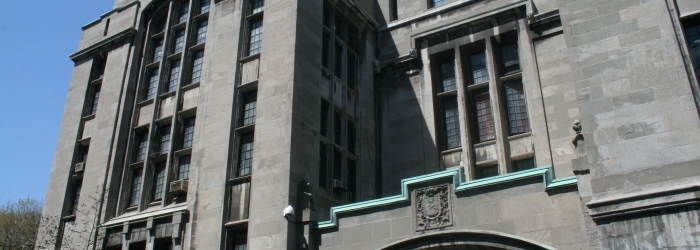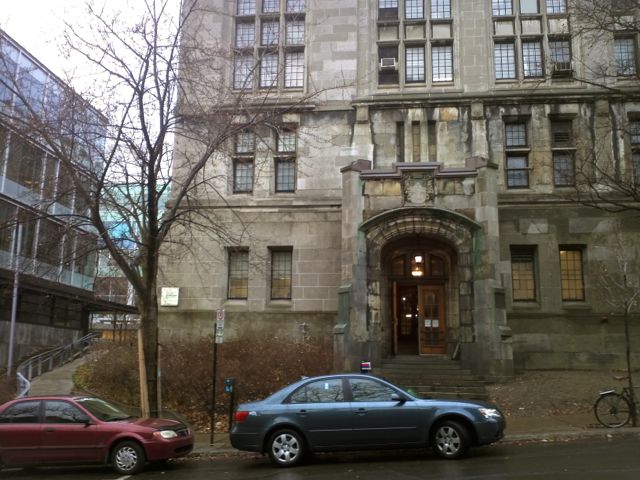
Brainstorm Training: Montreal, December 6, 2012
General information
Where: McGill University - Strathcona Anatomy & Densitry Building, room 1-12, 3rd floor from 3640 University St. (Map). Access is through side door pictured below: last building on the left of University Street before the des Pins intersection.

Enter through the door on University St and climb up two floors. Make a right at the top of the stairs: Room 1/12 is to your right in the hallway. Signs will be posted to guide you through the building.
When: Thursday, December 6, 8am-6pm
Instructors: Francois Tadel, Sylvain Baillet, Elizabeth Bock (MNI, McGill)
Target audience: Neuroscientists, psychologists, clinicians, engineers, etc. using MEG or EEG as advanced research tools. Students, Post-docs, Staff, Faculty interested in learning a new academic software tool for MEG and EEG data analysis, with an emphasis on source imaging, spectral decompositions and functional connectivity metrics.
Participation fees: $30 (students & post-docs), $60 (faculty and staff) - in cash at the door or by FOAPAL for McGill students/staff (send FOAPAL information at brainstorm@sipi.usc.edu ).
Workshop program
Requirements
The participants are required to bring a laptop. In order to make the afternoon session as efficient as possible, we ask all the attendees to download, install and test the software and sample dataset on their laptops prior to the workshop.
Please read carefully the following instructions:
How to prepare your laptop for the training
08:00-09:00: Laptop clinic
- Bring your laptop at this clinic if you are not sure you were successful in installing the material for the training session
09:00-09:15: Introduction by Sylvain Baillet
09:15-10:00: Brainstorm overview
- Software architecture
- Typical data workflow
10:00-11:00: Hands-on training begins
- Database explorer
- Importing MRI volumes, surfaces and atlases
- Introduction to anatomical atlases
11:00-11:15: Coffee break
11:15-13:50: Hands-on training
- Co-registration MEG/MRI
- Reviewing continuous recordings
- Artifact detection and correction
- Filtering and epoching
- Averaging, observation of a typical somatosensory evoked response
- Head modeling, cortical source reconstruction
13:00-14:00: Lunch break
14:00-18:00: Hands-on training resumes (coffee & refreshments served)
- Definition of ROIs, tracking the processing of the sensory information millisecond by millisecond at the cortex level
- Frequency and time-frequency analysis
- Functional connectivity
- Group analysis and statistics
- Advanced scripting interface
- Other topics can be discussed depending on the audience specific requests
